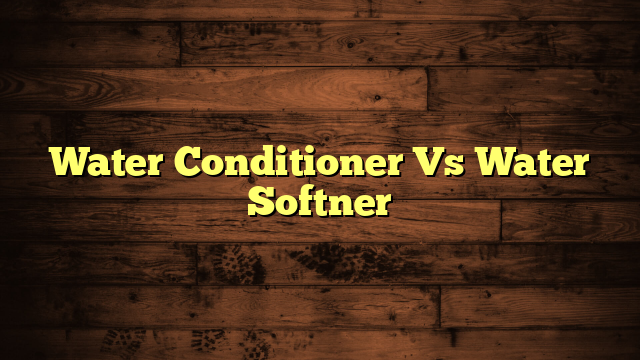How to Size Water Softner
Isn't it a coincidence that many homeowners overlook the importance of properly sizing their water softener? You might not realize that understanding your household's daily water usage and the hardness of your water is essential to selecting the right system. By calculating these factors, you can guarantee your softener operates efficiently, but there's more to take into account. What about the different types of softeners or the impact of regeneration frequency? Let's explore how these elements come into play to help you make an informed decision without any unnecessary complications.
Key Takeaways
- Test your water hardness using a kit to determine mineral content and select the appropriate softener size.
- Calculate daily water usage based on household size: 30-150 gallons depending on the number of residents.
- Consider the type of water softener suitable for your needs: salt-based, salt-free, or dual-tank systems.
- Establish a regeneration schedule based on water hardness and daily usage to maintain optimal performance.
- Review manufacturer guidelines for capacity ratings to ensure the softener can handle your household's water hardness and usage.
Understand Your Water Hardness
Understanding your water hardness is essential when sizing a water softener. It all starts with water testing, which reveals the mineral content in your water supply.
You'll want to check for calcium and magnesium levels, as these are the primary culprits behind hard water. After testing, you can refer to the hardness scale, which measures water hardness in grains per gallon (gpg) or parts per million (ppm).
Soft water typically registers below 3.5 gpg, while anything above 7 gpg is considered hard water. Knowing where your water falls on this scale helps you determine the right size for your softener.
If you have moderately hard water, a smaller unit might suffice; however, if you're dealing with very hard water, you'll need a larger, more robust system.
Calculate Daily Water Usage
Once you've tested your water and identified its hardness, the next step is to calculate your daily water usage. This is essential for determining the right size of your water softener. To get started, check your water meter; it tracks the total water usage in gallons over a given period.
Observe your usage patterns over a week or a month. Look at how much water you use for drinking, cooking, showering, and laundry. It can be helpful to note daily activities that consume water, such as washing dishes or watering plants.
You might want to estimate daily usage by dividing your total water meter reading by the number of days you've tracked.
As you gather this data, remember that average daily water usage can vary widely based on lifestyle and household size. For instance, if you have kids or pets, your daily consumption will likely be higher.
Once you've calculated your average daily water usage, you'll be better prepared to choose a water softener that meets your needs, ensuring your household enjoys the benefits of softened water without running short.
Determine Household Size
To size your water softener effectively, you'll need to assess how many people live in your household.
Each family member contributes to your daily water usage, which directly impacts your softener's capacity needs.
Moreover, evaluating the hardness levels of your water will help guarantee you choose the right system for your home.
Assess Family Members Count
Determining your household size is essential when sizing a water softener, as it directly impacts water usage and softening needs. The number of family members plays a vital role in understanding your water requirements. Larger families typically consume more water, while smaller households might have different softening needs based on lifestyle habits.
To help you assess your family size, consider the following table:
| Family Size | Average Daily Water Use (gallons) | Softener Size Recommendation |
|---|---|---|
| 1-2 members | 30-60 | 24,000-32,000 grains |
| 3-4 members | 60-100 | 32,000-48,000 grains |
| 5+ members | 100-150 | 48,000+ grains |
Calculate Daily Water Usage
Calculating your daily water usage is essential for selecting the right water softener. Start by checking your water meter. This device tracks your household's water consumption, giving you a clear picture of your daily usage patterns.
Record the reading over a week or two, noting the total gallons used during that time. Then, divide that number by the number of days to find your average daily usage.
Next, consider the size of your household. Each family member typically uses around 50-100 gallons of water daily for drinking, cooking, bathing, and laundry. If you have multiple bathrooms or a large family, your daily usage might skew higher.
Don't forget to account for guests or special occasions when water use can increase.
Once you gather this data, you can better understand your household's needs and select a water softener that can handle your specific daily water usage.
Remember, having this information helps guarantee your system can effectively manage water hardness without straining its capacity.
With a clearer grasp of your daily water usage, you're well on your way to enjoying the benefits of softened water in your home.
Evaluate Water Hardness Levels
Evaluating water hardness levels is essential for choosing the right water softener for your home. You need to know how hard your water is, as this affects the type of softener you should select.
To determine your water's hardness, follow these steps:
- Conduct hardness testing: Use a water hardness test kit. These kits are widely available and provide an accurate measurement of the mineral composition in your water.
- Understand the mineral composition: Water hardness is mainly due to calcium and magnesium ions. The higher their concentration, the harder your water is. Knowing this information helps you gauge how much softening you'll need.
- Check local water reports: Many municipalities provide water quality reports that detail hardness levels. Reviewing these can save you time and help you make informed decisions.
Once you've gathered this information, you'll be better equipped to select a water softener that meets your household needs.
Remember, an appropriate softener not only improves water quality but also enhances the lifespan of your plumbing and appliances.
Take these steps seriously, and you'll guarantee your home benefits from the right water treatment solution.
Consider Water Softener Types
When choosing a water softener, it's essential to evaluate the various types available on the market.
You'll typically encounter three main water softener types: salt-based, salt-free, and dual-tank systems. Salt-based softeners are the most common and effective, using ion exchange technology to remove hardness minerals. Their softener efficiency is often first-rate, providing you with clean, soft water.
Salt-free systems, on the other hand, don't remove hardness minerals but rather condition the water, preventing scale buildup. While they're easier to maintain, their effectiveness may not match that of traditional systems, especially in areas with high hardness levels.
Dual-tank systems offer an advantage for larger households; they can regenerate continuously without downtime, guaranteeing a steady supply of softened water.
When evaluating your needs, consider factors like household size, water hardness, and budget. Each type has its pros and cons, so understanding these will help you make an informed choice.
Assess Regeneration Frequency
To accurately size your water softener, you need to assess how often it regenerates.
Start by understanding your water hardness levels, as this will impact the frequency of regeneration you'll require.
Next, evaluate your household's water usage to calculate the right cycle frequency that keeps your water softener efficient and effective.
Understanding Water Hardness Levels
How do you determine the right regeneration frequency for your water softener? Understanding your water hardness levels is essential for ideal performance. Hardness testing is the first step in this process. You'll want to measure the calcium and magnesium content in your water supply to assess the water quality accurately.
Here's how to proceed:
- Get a Hardness Test Kit: Purchase a kit from a local store or online to test your water. It's a straightforward process that provides immediate results.
- Analyze the Results: Determine whether your water is classified as soft (0-60 mg/L), moderately hard (61-120 mg/L), hard (121-180 mg/L), or very hard (over 180 mg/L). This classification will help you understand how often your system needs to regenerate.
- Set a Regeneration Schedule: Based on your water hardness, establish a regeneration frequency that suits your household needs. Softer water may require less frequent regeneration, while harder water demands more frequent cycles.
Evaluating Household Water Usage
Evaluating your household water usage is vital for determining the ideal regeneration frequency of your water softener. By understanding your water consumption trends, you can better match the softener's performance to your needs.
To start, monitor your daily water use, including taps, showers, and appliances like dishwashers and washing machines. This will give you a clearer picture of your overall consumption.
Consider the efficiency of your household appliances as well. Newer models often use less water than older ones, which can greatly impact your water usage patterns. For example, if you've upgraded to a high-efficiency washer, your water consumption may be lower than it was a few years ago.
Documenting these trends over a month or two will help you gauge your average daily usage, which is essential for setting the regeneration frequency.
Calculating Regeneration Cycle Frequency
Once you've gauged your average daily water usage, you can calculate the regeneration cycle frequency for your water softener. This step is essential, as it helps guarantee that your softener operates efficiently and effectively.
Here's how to go about it:
- Determine your water softener's capacity. Check the manufacturer's specifications to know how many grains of hardness it can remove before it needs regeneration.
- Calculate your daily water hardness removal needs. Multiply your average daily water usage by the hardness level (in grains) of your water. This gives you the total grains your softener will need to handle daily.
- Divide the total grains by the softener capacity. This calculation will tell you how often your water softener needs to regenerate each week.
Evaluate Salt Efficiency
To guarantee your water softener operates efficiently, it's crucial to evaluate its salt efficiency. You want to verify that the salt you use is functioning effectively, which directly impacts both your water quality and your wallet.
Different salt types, such as rock salt, solar salt, and evaporated salt, have varying levels of purity and efficiency metrics. Higher-purity salts typically yield more softening power and require less frequent refills.
To assess salt efficiency, calculate the amount of salt used during regeneration compared to the hardness removed from your water. A good efficiency ratio indicates your system is running well. For example, if your softener uses 40 pounds of salt to remove 100 grains of hardness, you're looking at an efficiency of 2.5 grains per pound.
If your water softener isn't achieving a satisfactory efficiency ratio, consider switching salt types or adjusting the regeneration settings. Regularly monitoring these factors can help you maintain effective performance and extend the lifespan of your softener.
In the end, understanding salt efficiency can save you money and guarantee you enjoy softer water.
Review Manufacturer Guidelines
Understanding salt efficiency is only part of the equation when sizing a water softener.
To guarantee you choose the right unit, it's vital to review manufacturer guidelines. These specifications provide essential insights that can help you make informed decisions.
Here are three key aspects to take into account:
- Capacity Ratings: Check how many grains of hardness the unit can handle. This helps you determine if the softener's capacity suits your household's needs.
- Regeneration Cycle: Understand how often the unit regenerates. Frequent cycles can lead to higher salt usage, impacting both efficiency and cost-effectiveness.
- Installation Requirements: Different models may have varying installation needs. Reviewing these can save you time and headaches down the line.
Seek Professional Consultation
When it comes to selecting the right water softener, seeking professional consultation can make all the difference. Expert recommendations can guide you toward the best solution tailored to your specific needs. Professionals can assess your water quality, household size, and daily water usage, guaranteeing you get a system that fits perfectly.
Here's a quick overview of the benefits of consulting with a water treatment expert:
| Benefit | Description |
|---|---|
| Professional Advice | Get personalized insights based on your water analysis. |
| Efficient Sizing | Confirm you select a unit that meets your household's demands. |
| Long-Term Solutions | Discover maintenance plans and potential upgrades. |
Investing in professional advice can save you time and money in the long run. It's easy to get overwhelmed with all the options available. By consulting an expert, you can avoid common pitfalls and confirm you're making a sound investment in your home. So, don't hesitate to reach out—your water quality will thank you!
Frequently Asked Questions
How Often Should I Test My Water Hardness?
You should test your water hardness every six months. Regular water testing helps you monitor changes on the hardness scale, ensuring your water remains soft and your appliances function efficiently without buildup from hard minerals.
Can I Install a Water Softener Myself?
Absolutely, you can install a water softener yourself! With the right DIY installation skills and essential installation tools, you'll save money. Just make sure you follow the instructions carefully for a smooth process.
What Are the Signs My Water Softener Needs Maintenance?
If your water softener shows a maintenance warning, it's time to act. Reduced softener efficiency, salty taste, or hard water spots indicate issues. Regular checks can keep your system running smoothly and effectively.
How Does Water Hardness Affect Appliances?
You might think hard water's harmless, but it actually shortens appliance lifespan. Mineral buildup clogs pipes and damages heating elements, leading to costly repairs. Keeping your water softener maintained helps protect your appliances and saves you money.
Is There a Difference Between Sodium and Potassium Salt?
Yes, there's a difference. Sodium benefits include lower cost and effective softening. Potassium benefits are healthier for plants and less corrosive for pipes. Choose based on your needs and any dietary concerns you might have.
Conclusion
In summary, sizing your water softener properly is essential for maintaining water quality in your home. Have you considered how hard water impacts your daily life and appliances? By understanding your water hardness, calculating daily usage, and evaluating different types, you can make an informed choice that meets your family's needs. Don't overlook the importance of professional guidance if you're unsure. With the right softener, you'll enjoy cleaner, softer water for years to come.







